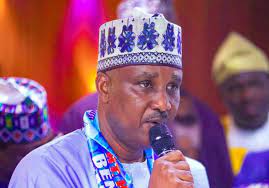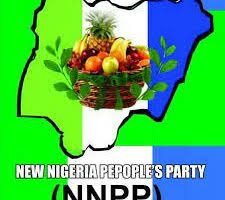As the privatised electricity distribution companies (Discos) continue to grapple with low allocation and poor supply, Kaduna Electric is pushing to meet demand of customers against all odds. The Managing Director, Engr. Garba Haruna speaks on how the company has coped so far and its expectation from government to strengthen its effort. MUSA ADAMU reports
Overview of performance six months after
The key challenges are the structures. Most of the Discos have their injection substations and other equipment in bad shape. Most of the customers are not even metered and those who have meters were using old mechanical meters and the transformers which are aged develop problems every now and then. So if you have a system like that, it is not possible to derive efficiency.
Knowledge of state of affairs before taking over
The bidders knew of the challenges but not the magnitude when they were outside until when they got in because at a point there were labour issues and we couldn’t get access to the information that we needed to inform their decision.
There was a time given to bidders to do due diligence but not it was not a detailed one.It was on that basis that the bidders drew their business plan.
The shadow management was done when you must have paid up to 75percent of the bid price which at that point, there was no going back.
But investors know that there are challenges of staff attitude, customer attitude, shortage of energy, obsolete equipment among others. The Discos are at the tail end as they only distribute what they get and the idea of this business is to improve the network and make new investments over a period of time so that things can change.
In the bidding process, we were given five years to reduce losses by government. We are to reduce losses by 40percent within five years but even with that, it is assumed that these losses could be more than that. So at takeover, one is given a year to establish the baseline losses, review our business plan and come out with a cost reflective tariff.
But, for you to get gas, you have to get it from gas producers; so there is an arrangement between gas distribution companies and Gencos. There is also gas sales and purchase agreement which you have to sign with the off takers of gas who then sell it to Gencos, who then generate power, pass it to the transmission company and then to the Discos.
Challenges of meeting customers’ expectations
Many customers expect electricity and water to be free as they are public utilities. In the past government manages that but not for the private sector as it has to recoup its investment from what it distributes. If you don’t collect your money you won’t be able to purchase the energy. The structure of the industry is that Discos buy electricity from the Gencos through the Bulk Trader and so the priority is to collect the money and buy energy.
However, once the energy is released it either goes to the customer that pays and the one that don’t pay. Unfortunately almost 60 to 70percent of the customers don’t pay their bills. Our energy value is about 2.5 to three billion naira monthly but we only collect N1 billion which is about one third, and that accounts for the collection losses.
We have energy losses where customers specialise in stealing power through bypassing meters and that accounts for the commercial losses. The technical losses are about old equipment which could not function well. These are some of the assessment we have carried out but while we are doing this we have to give supply because we can’t shut down the system.
Regulation against power theft
There are regulations from the Nigerian Electricity Regulatory Commission (NERC) but they are not enough. For instance, if you catch someone stealing power for the last two years, you can only charge him for only six months. They can also not be charged for the first time even if he has been doing it. He pays a fine of only N50,000 even when he has stolen power worth N2million.
Present load allocation and mode of distribution
Kaduna Disco should get 8% of total grid generation, but we don’t get that sometimes; even the while country don’t get the generation as supposed. More so, we are trying to deploy technology and the right personnel to ensure we boost our collection and boost efficiency because there is no way we can bridge the gap between N1billion and N2 to N3 billion without efficiency and it is not something we can do within a period of six months because the expectation of the customer is that it should be done within three months, something that is been done over 30 years and if you don’t do a careful study we will be making a wrong investment.
In terms of efficiency, even though we are doing studies, we are still investing so people can get electricity but there are challenges in the energy supply. Last month, the country got only 2000mw which is not even enough for our Disco which covers Kaduna, Zamfara, Sokoto and Kebbi states.
Discos presently have a capacity of distributing over 10,000mw but the transmission company at the moment only has 4000 to 5000mw capacity to transmit. So there is a gap. If today Gencos generate 10,000mw, Transmission Company may not be able to wheel the energy.
Reason for recent declaration of force majeure by some Discos
The declaration by some Discos apart from that of Yola was based on the tariff. The cost reflective tariff was what we signed with government where the tariff will be adjusted to give us opportunity to make investment and recover our cost when the tariff is adjusted.
But if the tariff is not even sufficient to pay for energy not talk of investment recovery, because the banks will look at the bankability of the whole business and if you cannot even recover your cost, how can the bank give you more money to invest?
What determines the recovery of investment is the tariff. It was set in such a way that you cannot recover even the cost of energy, that is why it becomes a force majeure issue and the regulatory company is trying to see how itcan make adjustment to make it a cost reflective tariff.
Why collection losses as component of the tariff
Even in developed countries there are Aggregate Technical Commercial and Collection (ATC&C) losses. You cannot have zero collection because everybody don’t pay bills 100percent. We already have a basis with BPE that we will reduce the losses every year. But reducing the collection losses to zero has changed the whole rule and that was why Discos filed in the force majeure.
Plans to improve power supply outside the grid allocation
For Kaduna, we are bit lucky as we have a 200mw power plant on construction; we are in talks with Sokoto government on their 35mw thermal plant. Other power industries approached us also on captive power and then we are moving to see that we utilise the hydros within our coverage.



